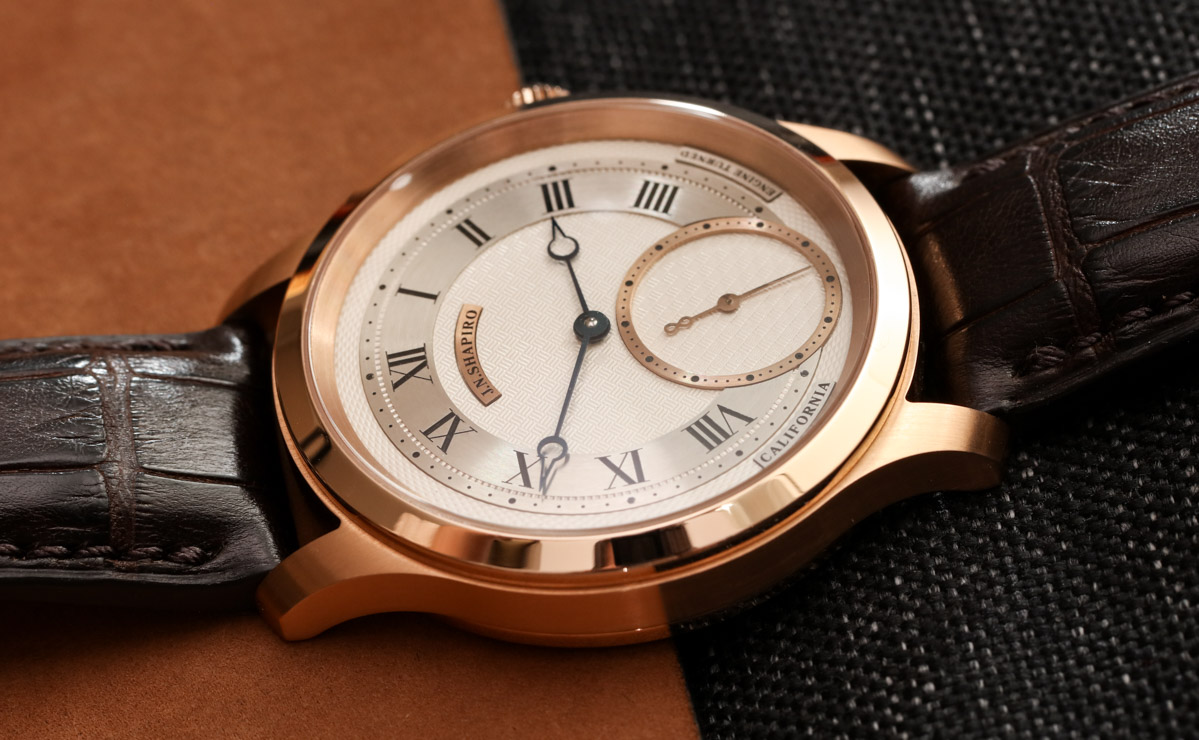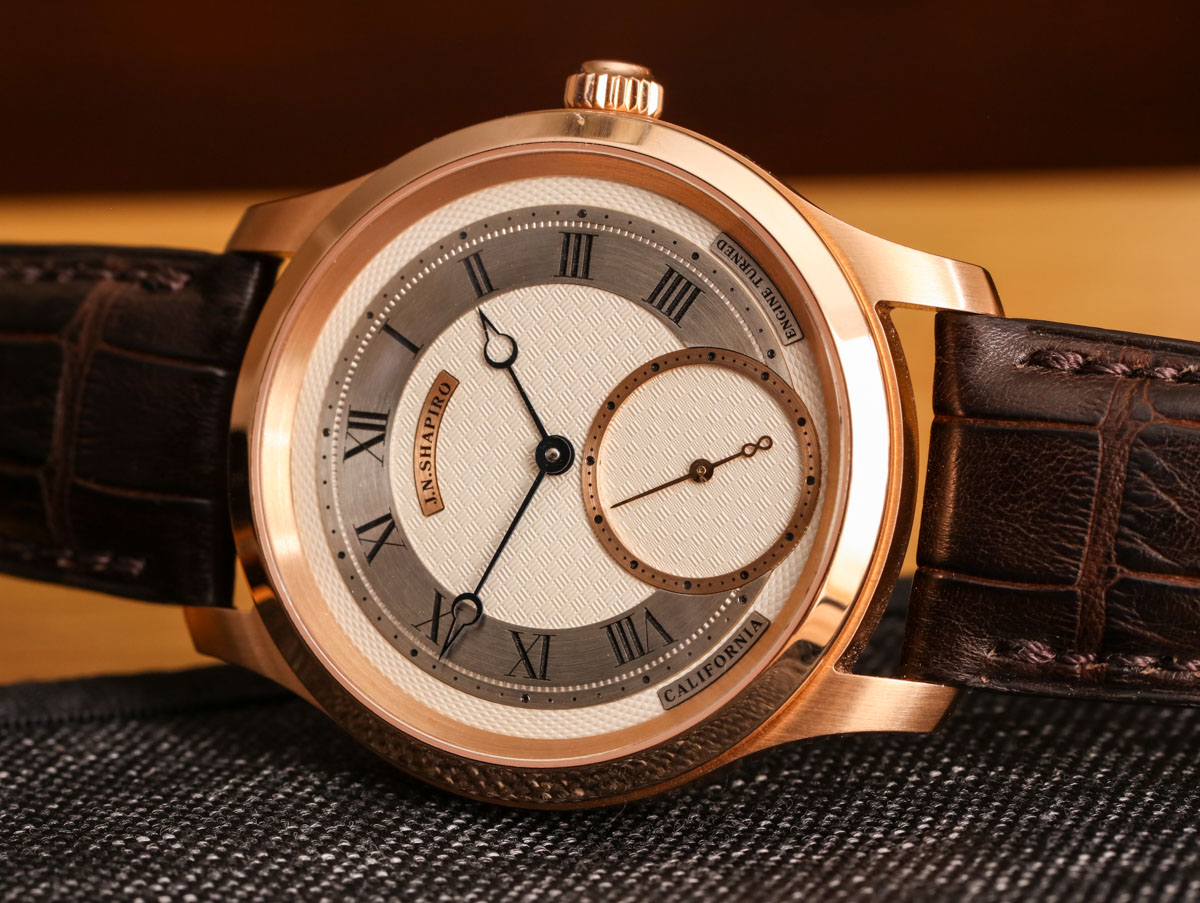
Josh Shapiro is one of the few people I’ve ever met who has “answered the call of George Daniels.” Working out of his small workshop in a traditionally residential part of Los Angeles proper, Josh Shapiro does not have the profile one might associate with a proud craftsman. Perhaps that’s because skills related to machining and precision construction are increasingly alien in large metropolitan parts of the world, like Southern California. Los Angeles does, however, benefit from a craftsmanship culture due to three primary local industries: cars, aerospace, and entertainment. It is thus oddly fitting for this hand machine-engraved guilloche watch dial to be born in Los Angeles in an “underdog meets established industry” tale. The result: his first timepiece called the J.N. Shapiro Infinity.
About 18 months before the J.N. Shapiro Infinity watch was completed, I visited Josh Shapiro to inspect his workshop. He had been collecting antique rose engine machines as well as some modern micro-construction tools in his compact but tidy space, and he gave me a demonstration on how guilloche dials are produced. This is a historic watchmaking technique most notable for being how most Breguet (late 18th century) dials were made. Today, Breguet, as well as a few other watchmaking houses, continue to create guilloche dials mostly by using machines which are no longer produced. Shapiro uses a series of techniques to produce each of his dials, which involves machine engraving, hand engraving, and coloring (ink or acid wash). According to Shapiro, adding up all the steps, each dial takes about a month to produce.
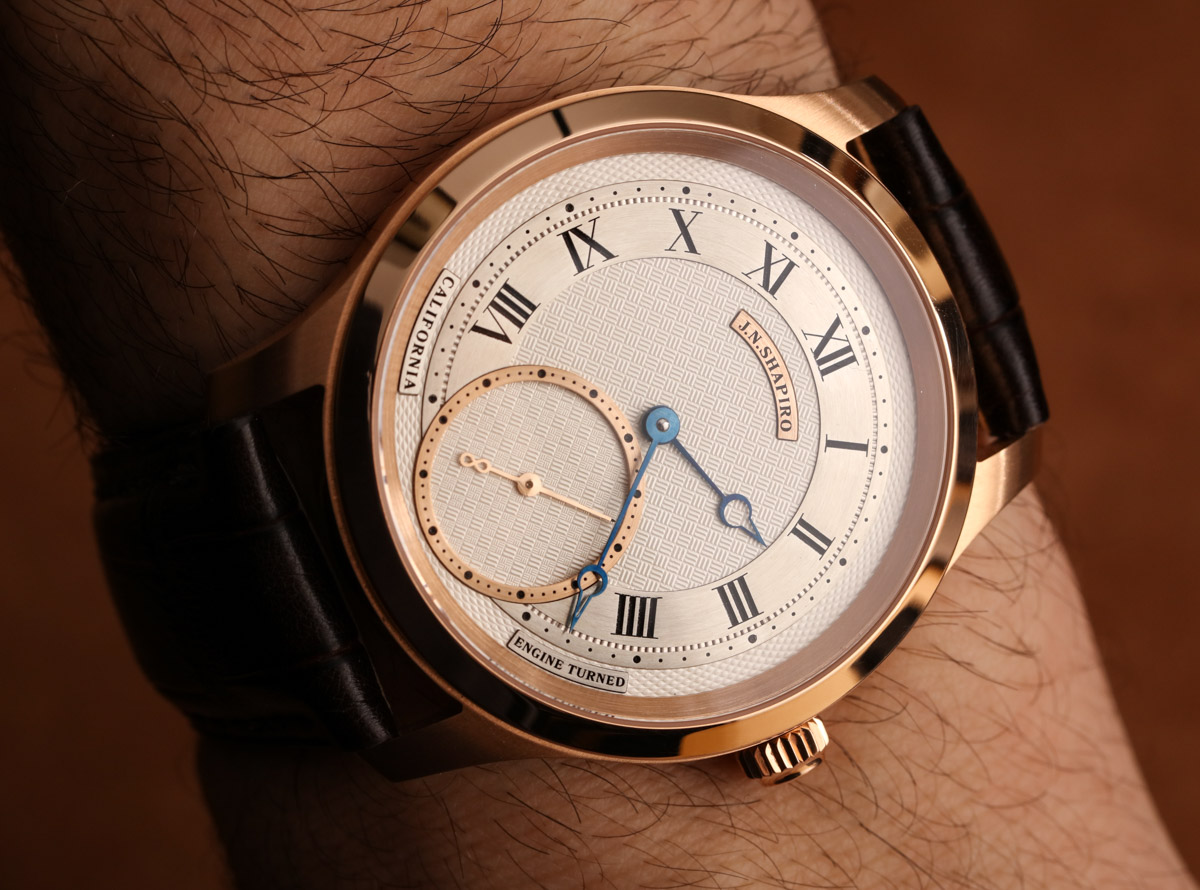
Rose engines (as the machines are sometimes known) in today’s age are mostly used for cutting wood. When they were no longer needed to decorate small metal parts on jewelry, these machines became less popular and stopped being produced. Existing ones are treasured by both collectors and companies, for the latter uses them to produce dials. The problem, however, is that the machine by itself often isn’t enough to get good results. Operating the machine is a lot like operating a musical instrument. You might know how to get sound out of a saxophone, but without training, you can’t play a song. For that reason, rose engine machines are said to be “hand-operated,” so their output is anything but automated. Josh Shapiro claims to have dedicated approximately seven years to studying watch and dial making techniques.
Josh tells me the dial on the prototype version of the Infinity watch took him 200 hours to make. He estimates the dial of each in the series will take up to 100 hours to make. It is clear that understanding how to produce the best results with a rose engine is tiring, arduous work that requires a lot of precision and patience. However, his biggest concern was, “What would Roger Smith think?” Over in England’s Isle of Man, Mr. Roger Smith continues the work of his mentor, George Daniels, and produces mechanical watches almost entirely by hand. Roger Smith was the only apprentice Daniels ever took on.

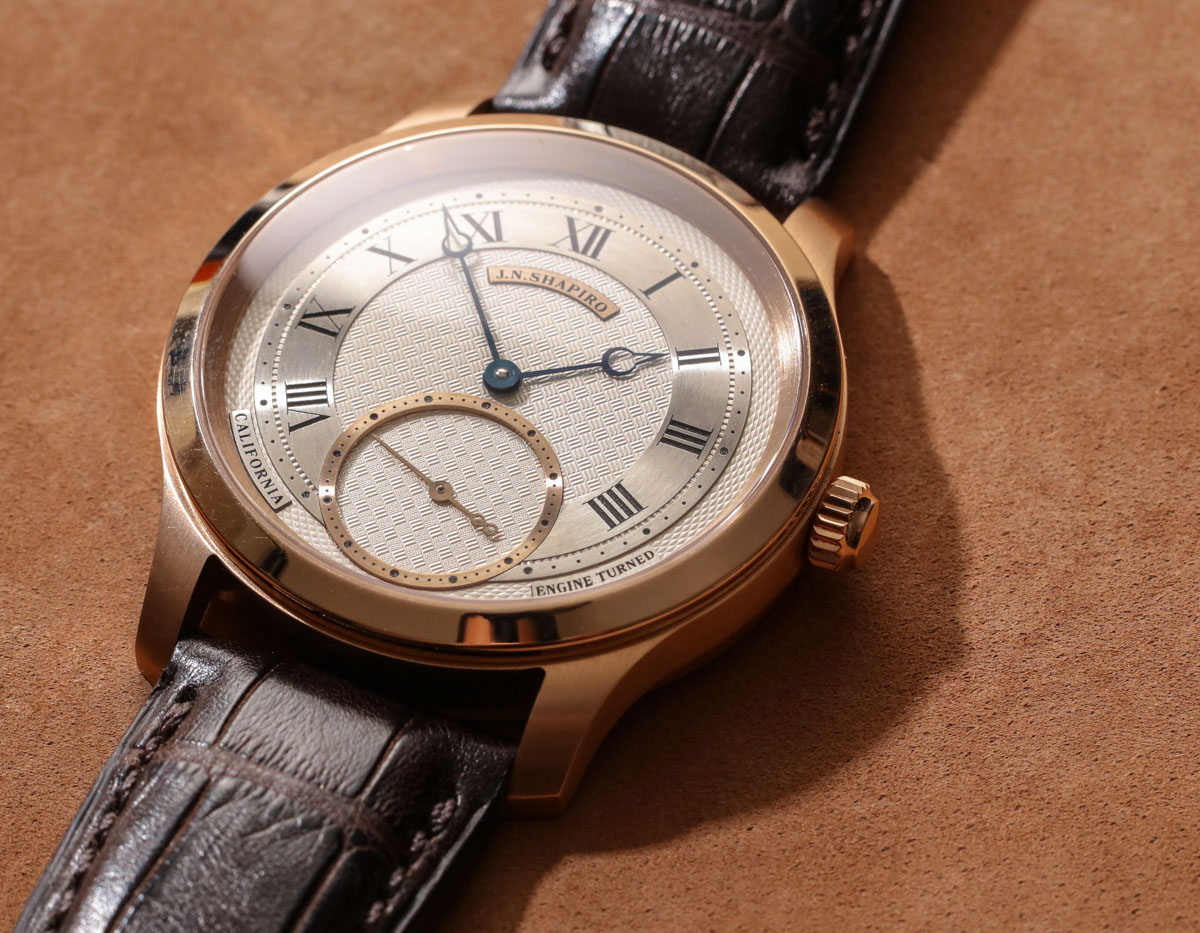
The esteemed watchmaker and inventor of the co-axial escapement, George Daniels, was also an author (and illustrator). Daniels wrote a few books, including his famous “Watchmaking.” Each of them are similar to an instruction manual on how to produce mechanical watches, though following Daniel’s teachings is much more complicated than assembling a LEGO set. Josh Shapiro discovered the work of George Daniels and answered the call. Though he doesn’t claim to be a watchmaker, Shapiro is certainly learning. For instance, he has worked closely with David Walters, a trained watchmaker in Santa Barabra who mostly produces bespoke clocks. Shapiro works with him and many other partners in California and Germany.
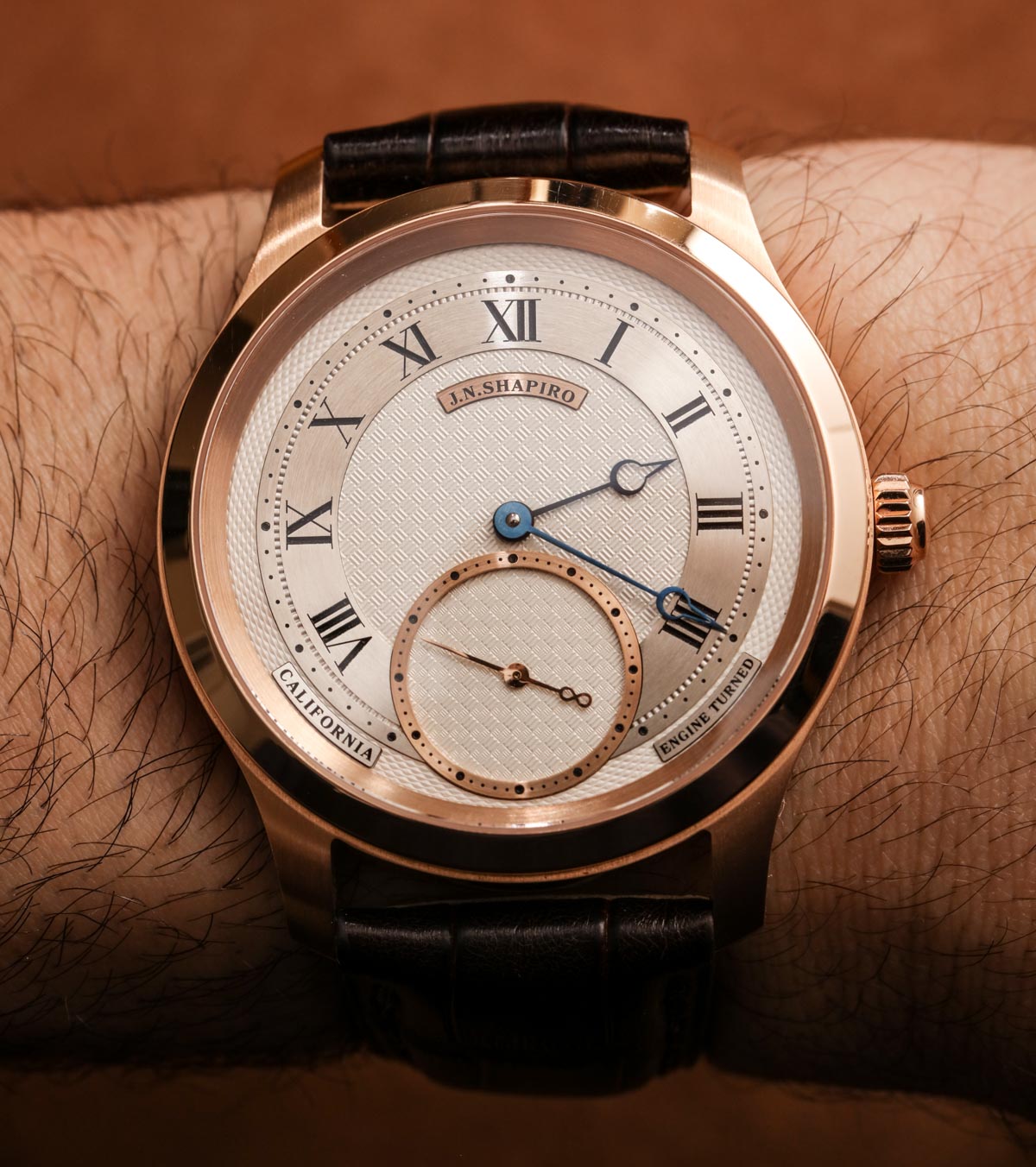
Both the case and movement of the Infinity watch are produced in Germany since Shapiro was practical and wanted both quality and prestige. The 42mm wide case is water resistant to 30m, and is available in 18k yellow, rose, or white gold. It’s also equipped with a sapphire crystal, and it’s very beautifully finished and well made (though certainly not cheap). He also tells me that steel and platinum cases can be made available on order. Inside the watch is a very uncommon manually-wound mechanical movement from UWD known as the caliber 33.1. Co-founded by the esteemed watchmaker Marco Lang (who worked on this movement design), UWD is a rare German watch movement supplier based in Dresden. The only other watch I’ve seen that also uses this movement right now is the Sinn 6200 Meisterbund. The movement is produced from nickel silver as opposed to brass, so it looks more nicely polished. It also has a distinctive architecture with an efficient mainspring mounting system (the “floating” mainspring barrel), which is supposed to help it remain accurate over time. The movement offers the time with a subsidiary seconds dial, has a power reserve of 53 hours, and operates at 3Hz (21,600 bph).

